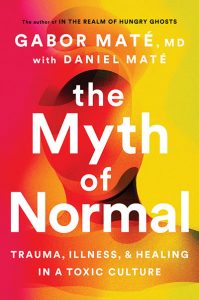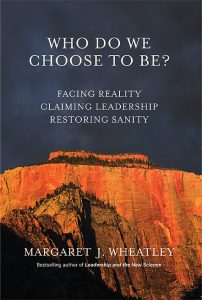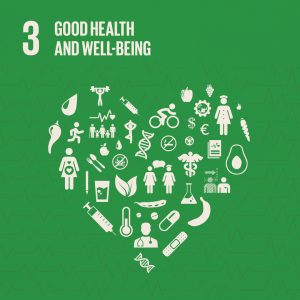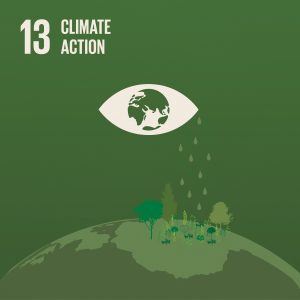“A Warrior for the Human Spirit is a decent human being who aspires to be of service in an indecent, inhumane time.” Margaret Wheatley, Who Do We Choose to Be?
Effective individuals, leaders, teams, organizations, and societies practice a common discipline: the willingness and courage to, in the words of business writer Jim Collins, “confront the most brutal facts of reality” while retaining faith that they can and will prevail in the end.
Indeed, unwillingness to face and acknowledge problems demotivates the best people and allows problems to fester and grow. In addition, there are those who benefit from an inhumane and indecent status quo, and they intentionally do what they can to maintain their advantage, in part by denying or obfuscating the truth.
Confronting the brutal facts of reality, we must admit that we do live “in an indecent, inhumane time.” In the U.S. and around the world we find human suffering and growing anxiety; four years of a global pandemic that has killed millions and remains a threat; vast and growing inequality of income and opportunity; exploitation of the many by the very few; shocking internal threats to democracy; catastrophic climate change; intentionally generated hatred and distrust among people; increasing overconsumption of resources; ecological degradation and species extinction… the list goes on.

Photo from Gabor Maté‘s website
In his new book The Myth of Normal: Trauma, Illness & Healing in a Toxic Culture, Gabor Maté argues that what we accept in society as normal is anything but normal. He writes: “Amid spectacular economic, technological, and medical resources, (our culture) induces countless humans to suffer illness born of stress, ignorance, inequality, environmental degradation, climate change, poverty, and social isolation…. In other words, those features of daily life that appear to us now as normal are the ones crying out the loudest for our scrutiny.”
Confronting the brutal facts and their causes sparks a desire to do something. But what can we do? How can we make a difference?

Photo from Margaret J. Wheatley’s website
In her book Who Do We Choose to Be? Facing Reality, Claiming Leadership, Restoring Sanity Margaret Wheatley answers the above questions this way: “The simple answer is found in all philosophies and spiritual traditions: Focus on serving others. Serve individuals; serve small groups; serve an entire community or organization.”
She writes: “We need leaders who recognize the harm being done to people and planet through the dominant practices that control, ignore, abuse, and oppress the human spirit. We need leaders who put service over self, stand steadfast in crises and failures, and who display unshakable faith that people can be generous, creative, and kind.”
After a lifetime of working to effect large scale change, Meg Wheatley concluded that it is at the local, interpersonal realm where we can have the most significant impact. For role models she cites the Dalai Lama, Nelson Mandela, and Desmond Tutu. She mentions stories of heroism from world wars, the civil rights and farmworkers movements, and efforts to support refugees and women and children as examples of people who persevere in difficult times and make a difference.
The people who work in this way, whose only weapons are compassion and insight, have a name. The name that describes this type of person is Warrior for the Human Spirit.
It is a name that “draws us forward into the future, a name that requires us to be fearless.” It describes who we commit to be and how we commit to show up. It gives us a shared identity, reminds us of our opportunity, and guides our way of being in the world. “Warriors remember what it means to behave decently, ethically. We remember the capacities that every human being possesses. We affirm and work with these forgotten qualities through our presence and our wise actions. And in all we do, we consciously try to refrain from adding to the confusion, aggression, and fear overwhelming most people.”
“The warrior tradition is found in many cultures, focused on either defense or peaceful service. In Tibetan, the word for warrior, pawo, means one who is brave, brave enough to never resort to aggression or fear to accomplish their purposes. In all traditions, warriors are a highly specialized group of people who are devoted to selfless service, who train with discipline and diligence to develop their skills, and who band together as a community. Warriors for the Human Spirit train in service to people, to support our best human capacities for generosity, compassion, altruism, curiosity, creativity, caring.”
Recalling Teddy Roosevelt’s guidance: “Do what you can, with what you have, where you are,” we are assured that we don’t have to look far for opportunities to support and serve others. “Wherever you’re working is where you take a stand. You don’t have to go looking for new places, other issues, compelling causes.… wherever you are, stay there and notice the abundance of warrior opportunities.”
What I find so encouraging is that being a Warrior for the Human Spirit does not require of us superhuman strength, intellectual brilliance, or the power of persuasion. All we are called to do is deeply express our humanity in seeing and nurturing the humanity of others. We are all equipped to do that.
The last bit of guidance for warriorship is offered by Mahatma Gandhi: “Be truthful, gentle, and fearless.”
Learn about the SDGs & AU and our contributions related to this post.






